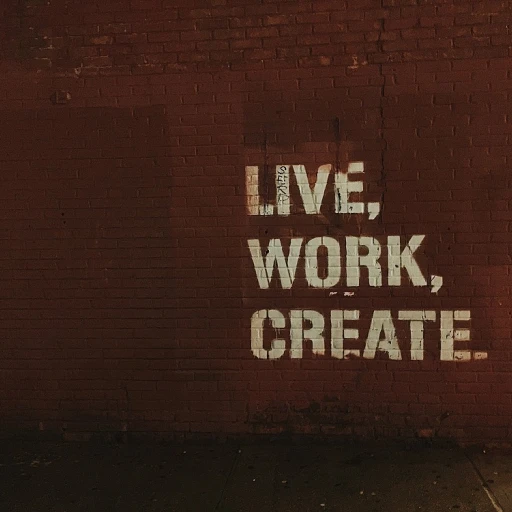
Understanding the role of a team leader in interviews
What Companies Expect from a Team Leader
When you step into a team leader interview, understanding the expectations for this role is crucial. Companies look for candidates who can balance leadership skills with practical management abilities. The team leader is not just a supervisor; they are responsible for guiding team members, ensuring project performance, and fostering a positive work environment. You will be asked interview questions that assess your ability to motivate team members, handle conflict, and drive results.
Key Responsibilities and Skills Assessed
During the interview process, expect questions that explore your experience with:
- Project management and time management
- Decision making and problem solving
- Communication and feedback techniques
- Team motivation and development strategies
- Handling customer service issues and managing performance
Interviewers want to see how you lead a team through challenges, support individual team members, and maintain high standards. Your leadership style and ability to adapt to different situations will be under review. Sample answers that demonstrate real-life leadership roles and outcomes can make your responses stand out.
How the Interview Process Reflects Leadership Demands
The interview process for team leaders often includes scenario-based questions, role plays, or assessment center exercises. These are designed to reveal your leadership skills in action. You may be asked to describe how you would handle a difficult team member, resolve a conflict, or improve team performance. Your answers should reflect your approach to communication, project management, and team development.
For more insights on what HR interview candidates need to know about onboarding and adapting to new leadership roles, check out this guide on mastering the onboarding process.
Preparing your leadership stories
Crafting Impactful Leadership Stories
When preparing for a team leader interview, your ability to share compelling leadership stories can set you apart. Interviewers want to see how you have demonstrated leadership skills in real situations. These stories help you answer behavioral interview questions with clarity and confidence, showing your approach to team management, project execution, and problem solving.
- Choose Relevant Examples: Select stories that highlight your leadership style, decision making, and ability to motivate team members. Focus on situations where you led a team, managed a project, or resolved a conflict.
- Use the STAR Method: Structure your answers using Situation, Task, Action, and Result. This helps you stay concise and ensures the interviewer understands your role and the impact of your actions.
- Showcase Key Skills: Emphasize communication, feedback, and team development. For example, describe how you provided constructive feedback to a team member or facilitated open communication during a challenging project.
- Highlight Outcomes: Whenever possible, quantify your results. Did your leadership improve team performance, customer service, or project delivery time? Use specific metrics to demonstrate your impact.
Sample answer for a leadership interview question: "Tell me about a time you had to lead a team through a difficult project."
"In my previous role as a team lead, we faced a tight deadline on a customer service project. I organized a meeting to clarify roles and set clear goals. By encouraging open communication and providing regular feedback, I kept team members motivated and focused. As a result, we completed the project ahead of schedule and improved customer satisfaction scores by 15%."
Remember, your stories should reflect your authentic leadership roles and management style. Practice your answers, but keep them flexible to adapt to different interview questions. For more on how evolving HR practices can influence your preparation, explore how trust-based time off is changing the landscape of HR job interviews.
Answering behavioral questions with confidence
Building Confidence for Behavioral Interview Questions
Behavioral interview questions are a central part of the team leader interview process. These questions are designed to reveal how you have handled situations in the past, which can be a strong indicator of your future performance as a team leader. Interviewers want to see your leadership skills in action, your approach to problem solving, and how you motivate team members during challenging times.
- Understand the "STAR" Method: Structure your answers using Situation, Task, Action, and Result. This helps you deliver clear, concise responses that highlight your leadership style and decision making.
- Prepare Real Examples: Think about times when you led a project, resolved a conflict, or improved team performance. These stories should showcase your communication skills, project management abilities, and how you provided feedback to team members.
- Practice Common Interview Questions: Sample questions might include "Describe a time you had to motivate a team member," or "How did you handle a disagreement within your team?" Practicing your answers will help you stay calm and confident during the interview.
Remember, the goal is to demonstrate your ability to lead, manage, and support your team. Highlight how you adapt your leadership style to different team members and situations. If you’re looking for creative ways to engage your team and boost morale, check out these fresh ideas for meaningful engagement that can inspire your own leadership approach.
| Interview Question | What Interviewers Look For | Sample Answer Tip |
|---|---|---|
| "Tell me about a time you led a team through a difficult project." | Leadership, project management, resilience | Describe the challenge, your strategy, and the outcome. |
| "How do you handle underperforming team members?" | Feedback, coaching, performance management | Share how you provide constructive feedback and support improvement. |
| "Give an example of a conflict you resolved within your team." | Communication, conflict resolution, empathy | Explain your approach to understanding both sides and finding a solution. |
Practicing your responses to these interview questions will help you project confidence and show that you are ready to take on leadership roles. Remember, authenticity and clarity are key to making a strong impression as a team leader candidate.
Demonstrating communication and conflict resolution skills
Showcasing Communication and Conflict Resolution in Interviews
Effective communication is at the heart of successful team leadership. During a team leader interview, expect questions that probe your ability to convey information clearly, listen actively, and resolve conflicts among team members. Interviewers want to see how you adapt your communication style to suit different personalities and situations, which is a core leadership skill.- Sample interview question: "Describe a time when you had to mediate a disagreement between team members. How did you handle it?"
- Sample answer: "In a previous project, two team members disagreed on the best approach to meet a tight deadline. I facilitated a meeting, encouraged both to share their perspectives, and helped them find common ground by focusing on our shared goal. This not only resolved the conflict but also improved team performance."
Demonstrating Active Listening and Feedback Skills
A strong team leader listens as much as they speak. In the interview process, you may be asked how you provide feedback or handle difficult conversations. Highlight your approach to giving constructive feedback and your openness to receiving input from team members. This shows your commitment to continuous improvement and effective management.- Discuss how you tailor your feedback to individual team members, considering their unique strengths and areas for growth.
- Explain how you create a safe environment for open communication, which is essential for team motivation and high performance.
Problem Solving Through Clear Communication
Team leaders are often at the center of problem solving, especially when projects hit roadblocks. Interviewers may present scenarios where you need to demonstrate your decision making and communication skills under pressure. Use real examples from your leadership roles to illustrate how you clarify expectations, delegate tasks, and keep everyone aligned.- Share a situation where your clear communication helped your team overcome a challenge or meet a critical deadline.
- Emphasize your ability to keep team members informed and engaged throughout the project management cycle.
Highlighting team motivation and development strategies
Showcasing Your Approach to Team Motivation
Interviewers often focus on how a team leader motivates and develops team members. They want to see evidence of leadership skills that drive performance and engagement. When answering interview questions about motivation, it’s important to share specific examples of how you have inspired your team to achieve goals or overcome challenges.- Describe a time when you recognized a team member’s achievements to boost morale.
- Explain how you set clear expectations and provided regular feedback to support team growth.
- Mention any creative strategies you used to keep your team engaged during a demanding project.
Demonstrating Your Development Strategies
Effective team leaders invest in the development of their team members. In the interview process, highlight how you identify strengths and areas for improvement within your team. Discuss your approach to coaching, mentoring, and providing learning opportunities. Sample answer: “In my previous role as a team lead, I held regular one-on-one meetings with each team member to discuss their career goals and identify skill gaps. I then created personalized development plans and encouraged participation in training sessions. This not only improved individual performance but also strengthened our overall team capability.”Linking Motivation to Performance Management
Leadership interview questions often explore your ability to connect motivation with performance management. Be prepared to discuss how you set goals, measure progress, and celebrate achievements. Use examples that show your decision making and problem solving skills, especially when addressing underperformance or conflict within the team. Consider these points:- How do you adapt your leadership style to different team members?
- What methods do you use to ensure open communication and trust?
- How do you handle situations where motivation is low or deadlines are tight?
Practical Tips for the Interview
- Prepare sample answers that highlight your project management and leadership roles.
- Practice explaining how you motivate team members and foster a positive work environment.
- Be ready to answer questions about your experience with customer service, feedback, and team performance.
Avoiding common pitfalls in team leader job interviews
Common Mistakes That Undermine Your Interview Performance
Even the most experienced team leaders can fall into traps during the interview process. Recognizing these pitfalls will help you present your leadership skills and management experience more effectively. Here are some frequent missteps to avoid when answering interview questions for a team lead or leadership role:
- Vague or Generic Answers: When asked about your leadership style or how you motivate team members, avoid broad statements like "I lead by example" without supporting details. Instead, use specific examples from your work or project management experience to illustrate your approach.
- Overlooking Team Contributions: Focusing solely on your own achievements can signal a lack of team orientation. Highlight how you supported team members, delegated tasks, and fostered collaboration to achieve performance goals.
- Dodging Difficult Questions: Behavioral interview questions often probe your problem solving and decision making skills. Don’t shy away from discussing challenges or conflicts. Share how you addressed issues, communicated with team members, and used feedback to improve outcomes.
- Neglecting Communication Skills: Effective communication is central to leadership roles. If you fail to demonstrate clear, concise, and empathetic communication—especially when describing how you resolve conflicts or deliver feedback—it may raise concerns about your suitability as a team leader.
- Failing to Connect Leadership to Results: Interviewers want to see how your leadership directly impacts team performance and customer service. Use sample answers that link your actions to measurable outcomes, such as improved team morale, project delivery on time, or enhanced customer satisfaction.
- Ignoring the Interview Structure: Some interviews, like those at an assessment center, may include group exercises or scenario-based questions. Prepare to demonstrate your leadership skills in both individual and group settings, adapting your approach as needed.
Tips to Strengthen Your Interview Answers
- Prepare sample answers that showcase your leadership experience, management style, and ability to motivate team members.
- Practice answering interview questions aloud to ensure your responses are clear and confident.
- Reflect on feedback from previous interviews or performance reviews to identify areas for improvement.
- Stay authentic—interviewers value honesty and self-awareness in potential team leaders.
By avoiding these common pitfalls and focusing on your unique strengths as a leader, you’ll be better positioned to succeed in your next team leader interview.













